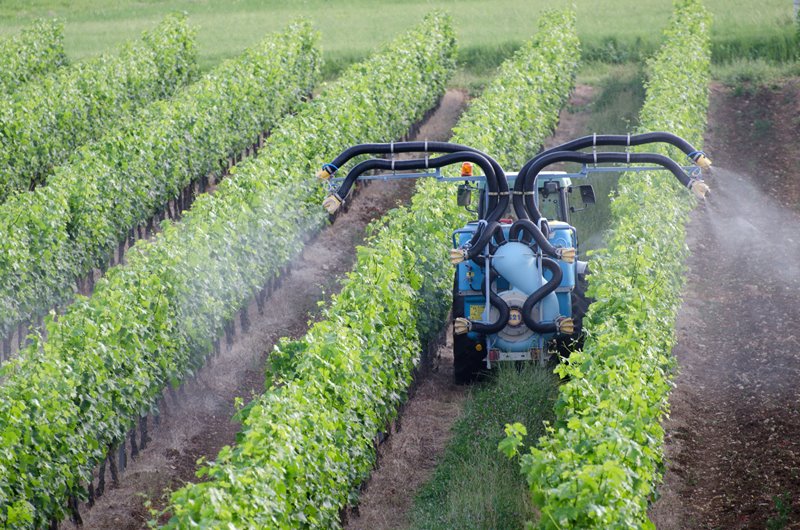Eurochamber rejects legislative proposal to cut pesticide use in the EU
A setback for environmental health: Contentious vote reflects division over environmental sustainability and agricultural practices in the EU
2023-11-23

In a significant development, the full session of the European Parliament (EP) has voted against a legislative project aimed at reducing pesticide usage within the European Union (EU). This decision marks a pivotal moment in the ongoing debate over agricultural practices and environmental health in the EU.
The legislation faced a considerable defeat, garnering 299 votes against and only 207 in favor, with 121 Members of the European Parliament (MEPs) abstaining. Austrian Green MEP Sarah Wiener, the rapporteur for the file, expressed her disappointment at the outcome. She described it as a "very black day" not only for public health and the environment but also for freeing farmers from the grip of the agro-industry.
Wiener had urged the EP to return the legislative project to the Environment Committee for reconsideration, but this proposal too was rejected by the MEPs. Following the vote, she expressed pessimism about the bill's prospects, deeming it "dead" in the current legislative session and doubting its revival before the 2024 European Parliament elections.
The original legislative initiative, introduced by the European Commission (EC) in June of the previous year, had ambitious targets. It proposed legally binding objectives at both national and EU levels to halve the use and risk of chemical pesticides and the use of the most hazardous pesticides by 2030. Under this plan, EU member states were to set their national reduction targets within defined parameters to ensure that EU-wide objectives were met.
However, the proposal encountered a challenging journey through the parliamentary process, marred by ideological differences between left and right-wing parties and conflicting views between the EP's Environment and Agriculture Committees. The Environment Committee pushed for ambitious targets to decrease pesticide usage, emphasizing nature protection and health, while the Agriculture Committee highlighted potential impacts on food security and raised concerns about the lack of adequate alternatives to chemical pesticides.
The EU Council, comprising member states and a co-legislator with the EP, also faced its share of challenges in processing the proposal. In December, the member countries requested an additional impact analysis from the European Commission, noting that the initial proposal had not accounted for the implications of Russia's invasion of Ukraine on agriculture.
Subsequently, in July, the Commission released this additional assessment, asserting that the legislation would not compromise food security, even considering the agricultural impacts of the conflict in Ukraine. The Commission warned that failing to meet the pesticide reduction goal could have long-term and potentially irreversible effects on future food security.
The rejection of the legislative project by the European Parliament has been met with mixed reactions. On one side, agricultural cooperatives and organizations have welcomed the decision. The Committee of Professional Agricultural Organisations and General Confederation of Agricultural Cooperatives in the EU (Copa-Cogeca) criticized the European Commission's approach as ideologically driven. They argued that while EU farmers and agricultural cooperatives are committed to improving environmental sustainability, they need realistic objectives and necessary support, which they believe were lacking in the Commission's proposal.
On the other hand, the opposition from various countries during a recent EU Agriculture Ministers meeting in Brussels highlighted the contentious nature of the proposal. German Agriculture Minister Cem Özdemir supported the general goal of reducing pesticide use by 50% by 2030 but opposed the Commission's strategy. Meanwhile, Finland's Agriculture Minister Sari Essayah argued against setting national targets for each EU member state, citing the low pesticide usage in Finland and deeming national targets for countries with minimal chemical use as "very unfair."
This development in the European Parliament signifies a crucial juncture in the EU's approach to agricultural practices, environmental health, and food security. The rejection of the pesticide reduction proposal underscores the complex balance between environmental conservation and agricultural productivity, highlighting the challenges in achieving consensus among diverse stakeholders in the EU.
Founded in 2007, Vinetur® is a registered trademark of VGSC S.L. with a long history in the wine industry.
VGSC, S.L. with VAT number B70255591 is a spanish company legally registered in the Commercial Register of the city of Santiago de Compostela, with registration number: Bulletin 181, Reference 356049 in Volume 13, Page 107, Section 6, Sheet 45028, Entry 2.
Email: [email protected]
Headquarters and offices located in Vilagarcia de Arousa, Spain.